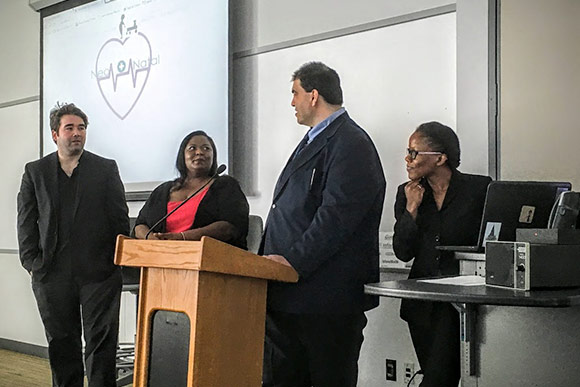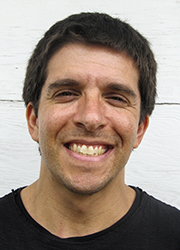Cleveland Codes graduates its first class from intensive tech program
 Cleveland Codes students showcase website project during recent demo day
Cleveland Codes students showcase website project during recent demo day
Nonprofit coding camp Cleveland Codes celebrated its first graduating class on June 30, a milestone that founder and social entrepreneur Matt Fieldman says is only the first of many for the tech-based certificate program.
Eleven of the coding school's initial 14-member cohort will move onto paid internships at companies including Medical Mutual, Third Federal Savings & Loan and Hose Master. As the venture seeks to place its last three graduates - which, like their compatriots, are low-income adults from Cleveland - Fieldman is confident area businesses will want coders with the skills his former students possess.
Over the 16-week class that began in March, participants learned coding languages in an intense, demanding environment, says Fieldman. Students were also taught critical soft skills such as resume writing and interviewing.
A high-pressure atmosphere creating a potential labor source has already been proven by Edwins Restaurant and Leadership Institute, an upscale restaurant co-founded by Fieldman that trains and employs the formerly incarcerated.
"If you give people the right training and support, they're going to rise to the challenge," he says.
About 120 applicants were pared down to 15 for the coding camp's first year. Though one student dropped the course, the remainder stayed on to harness free schooling, transportation and meals, paid for through grants from the Tri-C Foundation and the state's OhioMeansJobs program. Forty percent of participants were women, while 40 percent of the entire cohort represented minorities.
Newly-minted grads showcased the fruits of their hard work June 29 during an event at the Advanced Training & Technology Center (ATTC) on Cuyahoga Community College's metro campus.
As part of a class capstone project, students built an app based on NEO+natal, a proposal that took second place at the Cleveland Medical Hackathon last year and is designed to combat the region's high infant mortality rates. The project features a unique risk profile for mothers based on publicly available demographic and geographic data. With this information in hand, the Cleveland Codes app creators drew up a short questionnaire that could be used by a community health worker to assess a mother's risk level.
Efforts such as NEO+natal, says Fieldman, are emblematic of a talent pool ready for full-time technical work that can earn them upwards of $50,000 at the entry level.
"When you learn a skill that will propel your career for the next 50 years, that's really exciting," he adds. "It's great to see people who work with their hands have a bright future."
Cleveland Codes' second cohort starts in August, with two more planned for the fall. Fieldman envisions bigger classes that, upon graduation, move on as a whole to companies such as Hyland Software.
"We want to see this model grow and serve more communities," he says. "Companies complain about the lack of coding talent. This is an alternative where we want them to say, 'Yes, we want to work with you.'"

